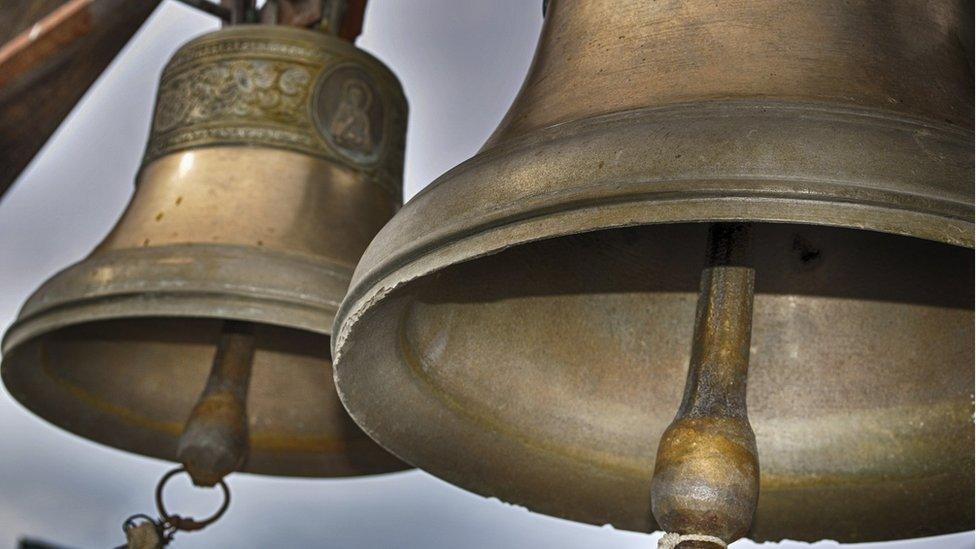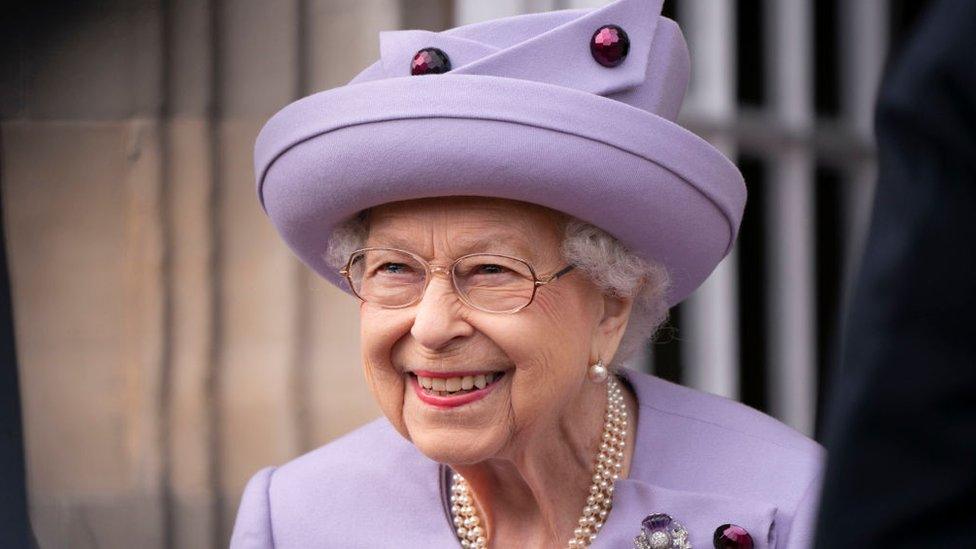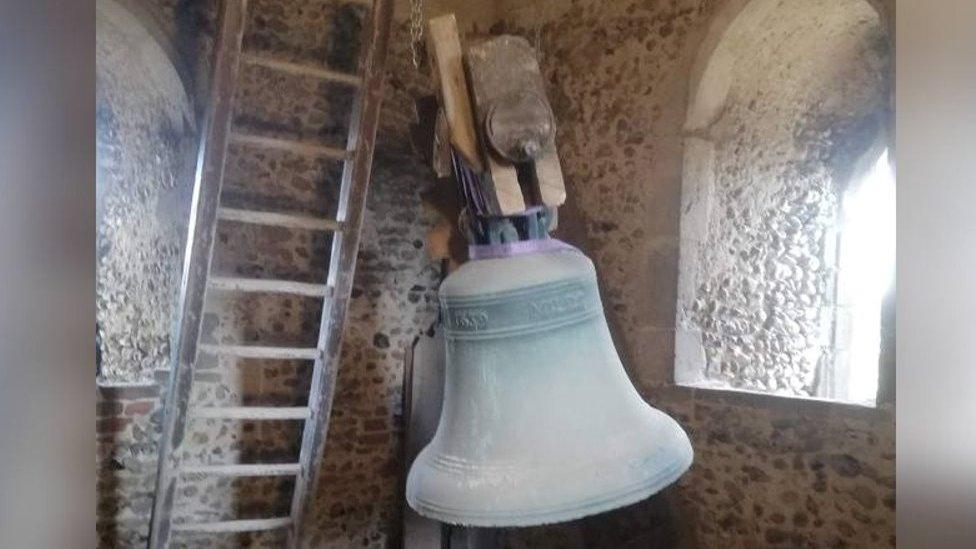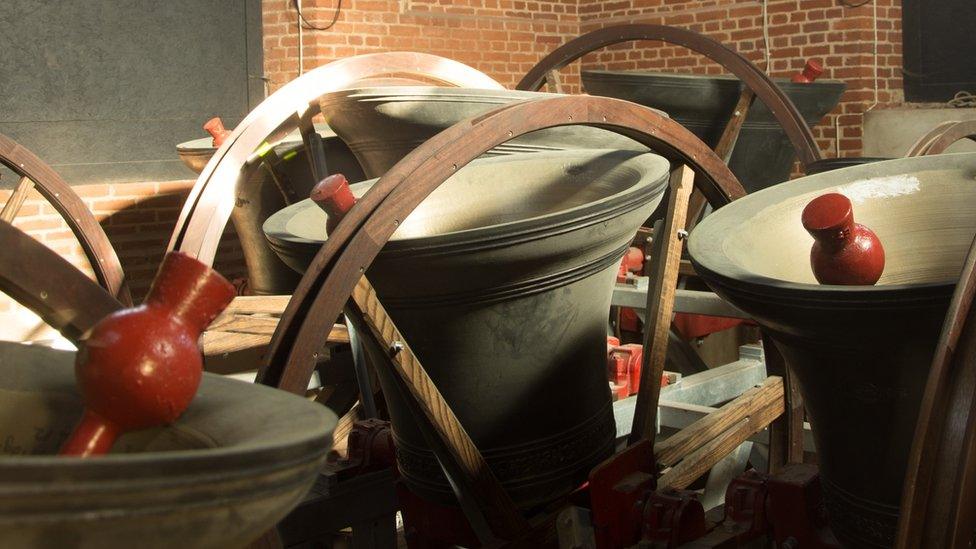Queen Elizabeth II: How the bells fell quiet
- Published

The ringing of muffled church bells to mark the death of a monarch is a centuries-old tradition
The days since the death of Queen Elizabeth II have been "momentous" for bell ringers, said the man charged with overseeing the practice in one city.
Chris Stanley, who runs ringing in Bristol, said the muffling of bells after a monarch dies is a centuries-old tradition.
Leather patches known as muffles are used to dull the sound of each bell.
"Bells are half-muffled for Remembrance Sunday, but are only ever fully muffled if a king or queen dies," he said.
Mr Stanley, a pension consultant by trade, is the chairman of the Bristol Branch of the Gloucester and Bristol Diocesan Association of Church Bellringers.
It had been a case of "action stations" for him and his fellow ringers when it was announced that Queen Elizabeth II had died, he said, with protocol dictating all bells should be rung at noon the following day.
"The desire was to get as many bells rung as possible at noon the following day, so it was a case of who we could get to go where.
"Bristol is slightly challenging in that there is a finite amount of ringers to go around a lot of bells, so places like the cathedral at St Mary Redcliffe were prioritised.
"In more rural places, I think people just down tools, close the shop they're working in or stop whatever they're doing and ring the bells."

Chris Stanley fits bell ringing around his full-time job
For bell ringers, he said, the past week had been "momentous".
"I learned to ring when I was 10, and so ever since I was a young boy, I've understood that we will fully muffle the bells when the monarch dies.
"There will have been generations of bell ringers who will never have experienced a time like this.
"One of the best-known muffler manufacturers is based here in Bristol and I am told he was operating his machines around the clock to keep up with demand."
'We will reflect public mood'
Mr Stanley said it was slightly unclear what happens to church bells once the Queen's funeral is over.
"I think the underlying tradition is that the country stays in mourning for a while.
"How long the muffling of the bells carries on is a local decision really.
"In this case, the Queen was old and had been on the throne for a long time. There isn't a tragic element to it, sad as it is.
"Essentially we'll probably carry on [muffling] for a short time to reflect the public mood."



Follow BBC West on Facebook, external, Twitter, external and Instagram, external. Send your story ideas to: bristol@bbc.co.uk , external
- Published19 September 2022

- Published9 September 2022

- Published27 November 2021

- Published30 October 2021
